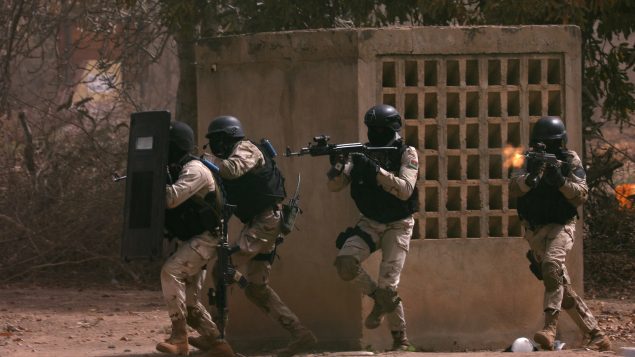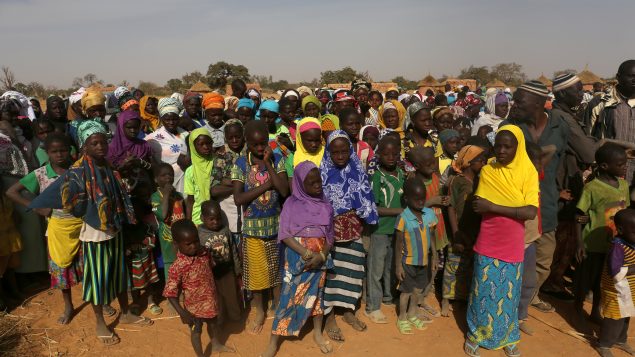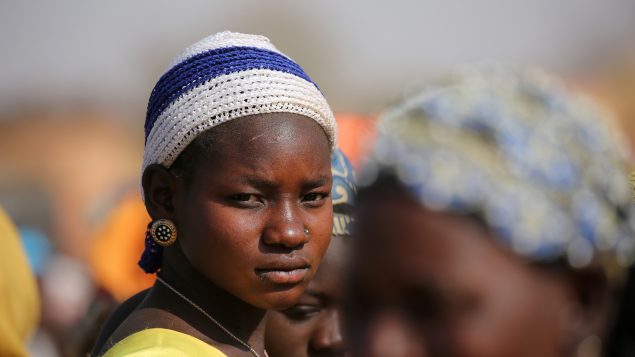As Burkina Faso marks the 59th anniversary of its independence, the United Nations is warning of an escalating humanitarian crisis driven by intensifying conflict and climate change that has gripped the West African nation and its neighbours in the Central Sahel region.
The World Food Programme says the international community must ramp up its humanitarian response to protect and save lives in Burkina Faso and neighbouring Mali and Niger.
“The Central Sahel region in West Africa, encompassing countries like Burkina Faso, Mali and Niger, is currently in deep trouble,” said Marwa Awad, a Canadian humanitarian worker, who is the spokesperson for WFP.
The region is facing a convergence of a rapidly escalating armed conflict between the government and various groups and population displacement, compounded by the effects of climate change, said Awad, who has just returned from Burkina Faso.
Deteriorating security
There has been a sharp increase in violence in Burkina Faso – the number of attacks in the first half of 2019 surpassed the total for 2018, with reported civilian deaths four times the total recorded in 2018, according to WFP.
An attack on a convoy of a Canadian-owned gold mine in eastern Burkina Faso killed 38 people and injured over 60 people in early November.
- Canadian gold mine hit by deadly attack in Burkina Faso won’t reopen in 2019
- Trudeau extends Canada’s condolences after 13 French soldiers killed in Mali
The UN estimates, that at least 486,000 people have been forced to flee their homes in northern Burkina Faso, moving south in search of security.

Soldiers from Burkina Faso participate in a simulated raid during the U.S. sponsored Flintlock exercises in Ouagadougou, Burkina Faso Feb. 24, 2019. (Luc Gnago/REUTERS)
This exodus has brought the total number of internally displaced people across the three Sahelian countries to 860,000 people and is putting pressure on host communities, infrastructure and humanitarian agencies, Awad said.
Even without the exacerbating impact of insecurity across the arid region, the Sahel is on the forefront of climate change, and many communities are already having to adapt to an unpredictable climate, according to WFP.
Nearly 2.4 million people need food assistance in the Central Sahel, a figure that could rise due to continued displacements, WFP says.
“We’re quite worried that people will not be able to survive much longer unless more and more assistance is given,” Awad said.
‘We could see that trauma in the eyes’

Displaced people wait for help at a village in Dablo area, Burkina Faso March 1, 2019. (Luc Gnago/REUTERS)
Awad said she had a chance to visit a camp for the internally displaced people located north of the capital Ouagadougou. There she had an opportunity to listen to people’s stories as they recounted harrowing experiences of fleeing for their lives.
“It’s quite traumatizing and we could see that trauma in the eyes of the children and the women, and, of course, the elderly people – everyone who’s feeling vulnerable by this,” Awad said.
David Beaseley, WFP’s executive director, warned that the international community is running out of time to respond to the crisis before it turns into a full-blown humanitarian catastrophe.
“Our teams on the ground are seeing malnutrition levels pushed well past emergency thresholds – this means young children and new mothers are on the brink,” said Beasley. “If the world is serious about saving lives, the time to act is now.”
WFP urgently needs $150 million US for operations in Mali, Niger and Burkina Faso, under existing programs that include both emergency activities and resilience-building programs, Beasley said.







For reasons beyond our control, and for an undetermined period of time, our comment section is now closed. However, our social networks remain open to your contributions.